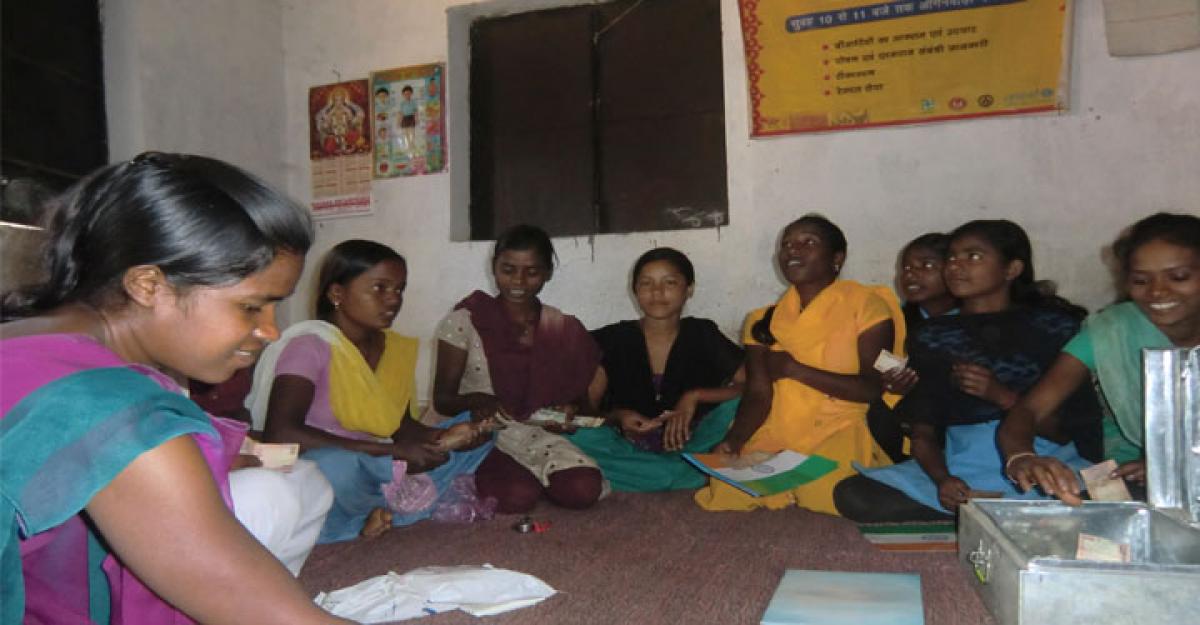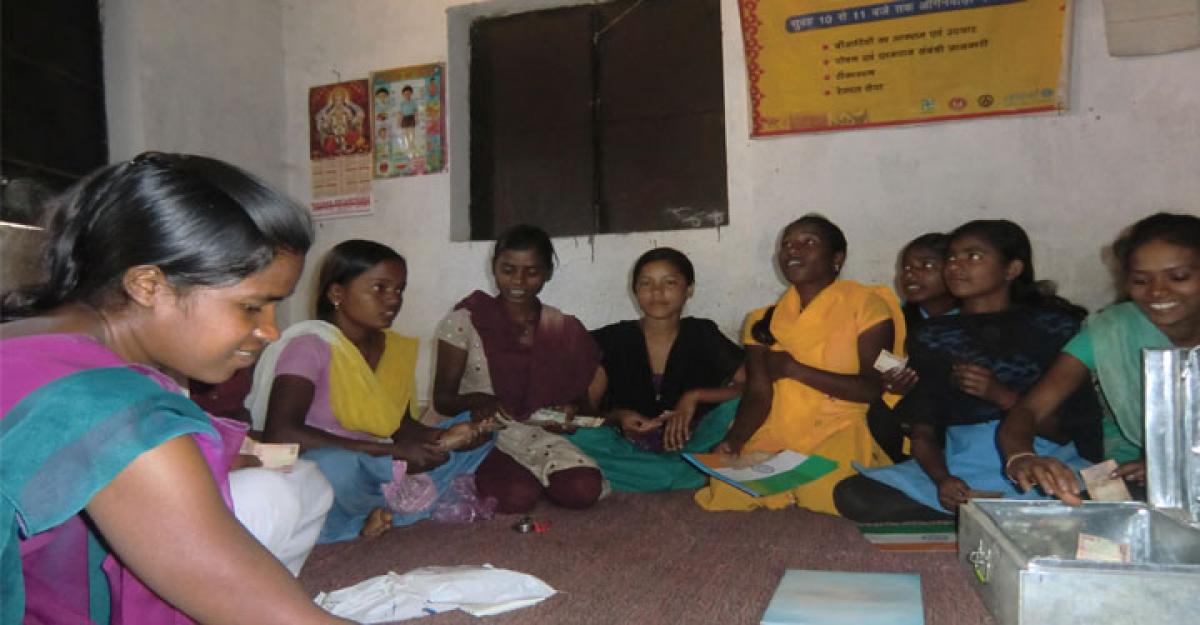Live
- Chandrababu announces village roads will be constructed similar to National Highways
- Realme GT 7 Pro India Launch: Battery Change, Key Features, and Specifications
- Border-Gavaskar Trophy 2024-25: Do not write off champions, says Nathon Lyon referring to Virat Kohli
- Telegram Mini-Apps Now Run in Full Screen with New Features
- Public hearing on challenges faced by deprived communities in accessing pensions
- Chandrababu Emphasises Importance of Polavaram Project in AP Assembly
- J&K L-G stresses need to preserve links with civilisational values
- Telangana High Court Strikes Down GO 16
- Mercedes-AMG C 63 S E Performance Review: Power, Hybrid Tech & Handling
- Kate Winslet Celebrates Moana’s Empowerment Message Ahead of Sequel Release
Just In

Neetu’s parents were spending sleepless nights trying to find a way to gather enough cash to replace their thatched roof with an asbestos or aluminium sheet, when the 15-year-old from Jidu Pandra Toli village in Jharkhand offered to pay for it. They simply could not believe that she could raise the Rs 6,000 needed for the roof sheet. However, Neetu not only managed to secure a loan but she also paid it off within six months.

Members of the Kishori Mandal in Ranchi district get together once every week to review their micro-credit accounting and then discuss issues like eating healthy meals or standing up against child marriage
Neetu’s parents were spending sleepless nights trying to find a way to gather enough cash to replace their thatched roof with an asbestos or aluminium sheet, when the 15-year-old from Jidu Pandra Toli village in Jharkhand offered to pay for it. They simply could not believe that she could raise the Rs 6,000 needed for the roof sheet. However, Neetu not only managed to secure a loan but she also paid it off within six months.
“In May 2014, the thatched roof of our mud house got completely scattered during a fierce thunderstorm. When I offered to pay to buy an asbestos or aluminium sheet, they could not believe that I could arrange for the money,” recalls Neetu Kumari, 15, of Jidu Pandra Toli village in Ormanjhi block of Ranchi district, Jharkhand.
What they did not know was that being a member of the Jidu Pandra Toli Kishori Mandal gave the youngster access to credit when needed. Comprising 13 members, all girls between 12 and 19 years, Jidu Pandra Toli Kishori Mandal runs a successful micro-credit venture. “All of us contribute Rs 10 every week. We have a corpus of over Rs 15,000. I borrowed the money at five per cent interest,” she reveals.
The Kishori project for teenage girls was started in Jharkhand by Child in Need Institute (CINI), an NGO partner of the Department of International Development supported Global Poverty Action Fund project launched in October 2012. “From adolescent and maternal health to sanitation and nutrition, our volunteers have sensitised the youngsters on various issues. Many of them have set up a micro-credit corpus to save money for a rainy day,” says Faiz Ahmed, Programme Coordinator, CINI, Jharkhand.
Interestingly, greater financial control has given them the power to improve the health, sanitation and nutritional status of their families as well. Take Khusboo Kumari, 13, who borrowed Rs 5,000 from her group, Rahat Kishori Samooh Tape, also in Jidu Pandra Toli, to pay the instalment for her father’s auto-cab and in return got the opportunity to have a say in the kind of food that is cooked at home. “He was unable to raise the money for one month and I paid the EMI. In return, I got charge of the food management in the house. Earlier, they never paid attention when I talked about eating better. Nowadays, I buy the vegetables and whip up tri-colour meals that usually comprise white rice, green vegetables and saffron tomatoes or papaya. It was a smart bargain,” she says, with a smile.
“Some of us have convinced our parents to build toilets after offering to pay part of the costs through loans taken from the group,” adds Sarita Kumari, 18, another Kishori Mandal groupie. Not just health and sanitation, these groups have been proactively preventing child marriages as well. According to Aarti Kumari, 15, President of the Chanchal Kishori Samiti of Palu village, which falls under Chutupalu gram panchayat in Ranchi district, girls have started protesting vehemently against early marriage with the strong backing of these groups.
There are several girls who are paying for their own education. Eighteen-year-old Manti Kumari’s first loan of Rs 1,700 was to gain admission at the RTC Inter College. Later, she took another Rs 500 for books. “Then in early 2015 I took another loan of Rs 2,800 from the Jidu Pandra Toli Kishori Mandal for my mother’s treatment. This, of course, was after I had paid back my earlier education loan,” she says.
Apart from funding their studies, the girls often borrow to buy sanitary pads. “Parents don’t want to pay for sanitary pads. The ‘sahiya’ (government health worker) gives us a packet for Rs 6 but sometimes we don’t have that money. The group buys and keeps packets for emergency use from its funds. As micro-credit is central to their operation, when the groups meet once a week at a designated place like the gram panchayat office, accounting is the first issue on the table. Once the money matters are settled, the discussion opens out - usually to health matters.
Girls who are part of the Kishori project earn, save, take loans, provide financial help to the family during an emergency and most of all, they have good credit as a means for empowerment.
By:Ajitha Menon

© 2024 Hyderabad Media House Limited/The Hans India. All rights reserved. Powered by hocalwire.com







